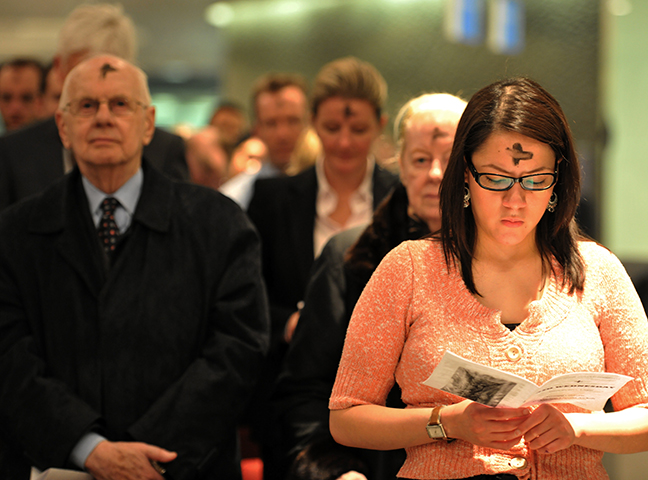
What does this ancient tradition mean? How can it benefit everyone, whatever their religious or non-religious affiliation? Does it really have a place in people’s lives today?
Over a billion people across the globe will have a grey mark, in the shape of a cross, placed on their forehead on 10 February to signify the start of one of the longest periods of prayer and self-denial in the annual religious calendar.
Ash Wednesday is the day on which Christians receive a cross of ashes, made from burnt palm leaves, to visually communicate the start of Lent – a 40 day period when more time is dedicated to spiritual growth in preparation for the commemoration of the suffering and death of Jesus Christ and the celebration of his resurrection at Easter. This six-week season mirrors the amount of time that Jesus spent in the desert to fast and pray.
Ashes have been used for centuries by people of faith to express sorrow and grief for their sins and faults. Such a practice is referenced in the Bible on a number of occasions. In the Christian tradition, the wearing of ashes is an external sign of repentance and communicates a desire to follow God’s way of love and forgiveness, more closely. They also remind those who receive them, rather poignantly, that they come from ashes, and to ashes they will return.
Rt Rev Seamus Cunningham, Bishop of Hexham and Newcastle Diocese and a member of the Catholic Bishops’ Conference Department for Evangelisation and Catechesis, said: “This is an important day, but it’s not just for Catholics. Anyone can receive blessed ashes on Ash Wednesday, whether Christian or not, to express their desire to grow spiritually and to turn away from their failings, their areas of weakness and brokenness, in favour of seeking the healing and wholeness that only God can give. You are welcome to come along to any Ash Wednesday service and join us in taking this simple, but profound step.”
In addition to receipt of the ashes, Ash Wednesday is observed by fasting and abstinence from meat. At a very simple level, Lent provides an opportunity for people to re-direct their lives according to God’s plan.
The palm leaves used to make the ashes on Ash Wednesday are used on the previous year’s Palm Sunday; on this Sunday Christians celebrate Jesus’ triumphant entry into Jerusalem, ahead of his suffering, death and resurrection.
catholicnews.org.uk/ashes-in-sunderland-2016
Two churches in the north east of England take Ash Wednesday to the streets of Sunderland
Text provided by the Home Mission Desk.